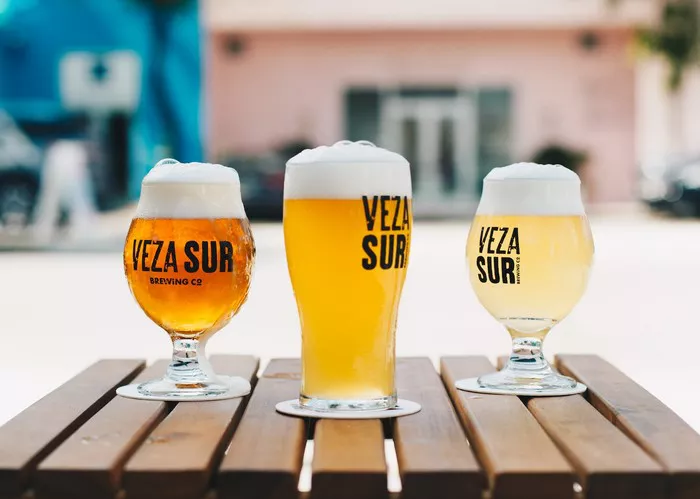Beer is a popular beverage enjoyed by many around the world. Whether at a party, a barbecue, or a quiet night at home, beer often makes an appearance. However, one common complaint among beer drinkers is the frequent need to urinate. This article explores why beer has this effect on the body. Understanding the science behind this phenomenon can enhance your appreciation of beer while also helping you manage its effects.
Urination is a natural bodily function. It plays a vital role in maintaining fluid balance and eliminating waste. When we drink, our bodies must process the liquids we consume. Beer, in particular, contains several components that can lead to increased urination. These components include alcohol, carbonation, and certain compounds found in beer. By examining these elements, we can gain insight into why beer seems to make us pee more than other beverages.
The Role of Alcohol in Beer
Alcohol: A Diuretic Effect
One of the primary reasons beer makes you urinate frequently is its alcohol content. Alcohol is a well-known diuretic. This means it increases urine production. When you drink beer, alcohol enters your bloodstream and affects the kidneys. The kidneys are responsible for filtering blood and producing urine. When alcohol is present, it inhibits the release of a hormone called vasopressin.
Vasopressin: The Antidiuretic Hormone
Vasopressin, also known as antidiuretic hormone (ADH), plays a crucial role in regulating water balance in the body. Normally, ADH helps the kidneys retain water. When you consume alcohol, its presence decreases the production of ADH. As a result, your kidneys do not reabsorb as much water, leading to increased urine production. This is why after drinking beer, you may find yourself heading to the restroom more often than usual.
The Impact of Carbonation
Carbonation: A Contributing Factor
Another factor that contributes to the increased urge to urinate after consuming beer is carbonation. Most beers are carbonated, which means they contain dissolved carbon dioxide gas. When you drink a carbonated beverage, the gas can create a feeling of fullness in your stomach. This fullness can lead to a quicker urge to relieve yourself.
Bloating and Pressure: The Urge to Pee
The carbonation in beer can cause bloating and pressure in the bladder. When your stomach is full of gas, it can push against the bladder, signaling the need to urinate. Additionally, the bubbles in carbonated drinks can stimulate the stomach lining and increase gastric acid production. This reaction can lead to a quicker digestion process, causing you to feel the urge to empty your bladder sooner.
The Role of Ingredients in Beer
Ingredients: What’s Inside Your Beer?
Beer is made from several ingredients, including water, malt, hops, and yeast. Each of these components plays a role in the overall effect of beer on your body. For example, many beers have high water content. This contributes to the volume of liquid in your system. The more liquid you consume, the more likely you are to need to urinate.
Hops: More Than Just Flavor
Hops, another essential ingredient in beer, can also affect urination. Hops contain compounds that may act as mild diuretics. This means that they can enhance the diuretic effect of the alcohol present in beer. Consequently, the combination of alcohol and hops may lead to even more frequent urination.
Hydration and Beer Consumption
Hydration: The Importance of Balance
It’s important to note that beer is not the most effective means of hydration. While it contains a lot of water, the alcohol content can lead to dehydration. When you drink beer, the body needs to process the alcohol, which requires water. This means that instead of hydrating, you might be putting your body in a state of mild dehydration.
Drinking Water: A Balanced Approach
To counteract the dehydrating effects of beer, it’s beneficial to drink water alongside it. Staying hydrated can help balance out the effects of alcohol. This practice can reduce the frequency of urination and may also minimize hangover symptoms the next day. Aim for a glass of water for every beer you consume to maintain hydration.
See Also: How to Make Flavored Beer at Home? 3 Detailed Tutorials
Individual Factors Affecting Urination
Individual Differences: Everyone is Unique
It’s essential to recognize that everyone reacts differently to alcohol and beer. Factors such as body weight, metabolism, and overall health can influence how often you need to urinate after drinking. Some people may find that they have to urinate more frequently than others, even after consuming the same amount of beer.
Sensitivity to Alcohol: Tolerance Levels
Individual tolerance to alcohol also plays a role. People who drink regularly may develop a higher tolerance, which could affect how their body responds to beer. Those with lower tolerance levels may experience more pronounced diuretic effects. Additionally, certain medical conditions or medications can also impact how your body processes alcohol and fluid balance.
Conclusion
In conclusion, the frequent need to urinate after consuming beer can be attributed to several factors. The alcohol in beer acts as a diuretic, reducing the production of vasopressin. Carbonation can create a feeling of fullness and pressure on the bladder. The ingredients in beer, such as hops, also contribute to this effect.
Understanding these mechanisms can help beer drinkers make informed choices. If you enjoy beer but want to manage its effects, consider balancing your intake with water. Recognizing individual differences in response to alcohol can also help tailor your drinking experience. By being mindful of these factors, you can enjoy beer while minimizing the inconvenience of frequent trips to the restroom.
You Might Be Interested In:


